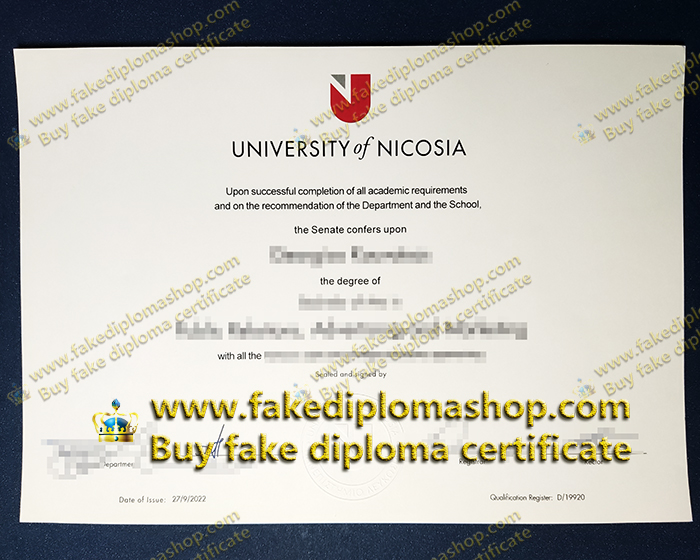
University of Nicosia diploma, UNIC diploma
Where to get a fake University of Nicosia diploma services for a better job? How to Replace Lost University of Nicosia diploma? How to obtain a University of Nicosia fake diploma quickly? Buy a UNIC diploma of Bachelor with a real raised seal, purchase a fake University of Nicosia degree diploma, best fake University diploma for sale. The University of Nicosia established in 1980 and its main campus is located in Nicosia, the capital city of Cyprus. It also runs study centers in Athens, Bucharest and New York.
In offering some courses, the University of Nicosia is associated with St. George’s University, University of London, Aristotle University of Thessaloniki, Peloponnese University, University of Patre, Hellenic Open University, University of Padua, University of Zagreb, University of Western Sydney and University of MGIMO.
In 2014, UNIC became the first university in the world to offer a Master of Science degree in blockchain and digital currency, and the first educational institution to accept Bitcoin for tuition. Starting with the spring 2017 graduating class, UNIC publishes the diplomas of all of its graduates (bachelor’s, master’s, PhD) on the Bitcoin blockchain, providing instant online verification of the degree’s authenticity.
In 2019, the University of Nicosia was ranked 91st among the top 100 universities in the Emerging Europe and Central Asia (EECA) region by QS World University Rankings. UNIC is also the first university in the EU to receive a 5-star rating for online/distance learning. The accolade follows an assessment of the QS Intelligence Unit, a leading, independent global university rating agency.
UNIC offers distance learning programs at the bachelor’s and master’s levels. The university’s e-learning approach draws on the revised e-Learning Strategy approach of the Higher Education Funding Council for England (HEFCE) to enhance learning and teaching through the use of technology, and the 2010 expanded version of the Quality Assurance Agency for Higher Education (QAA) strategy for flexible and distributed learning.

